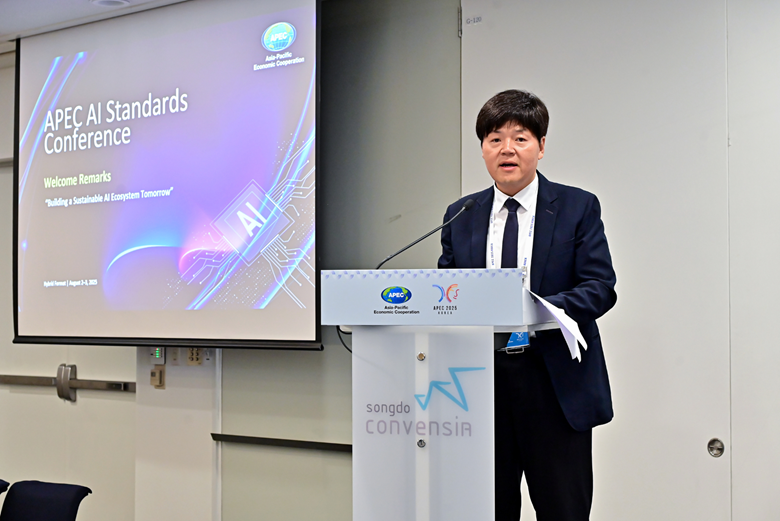
As artificial intelligence (AI) reshapes economies and societies across the Asia-Pacific, APEC is stepping up efforts to ensure this transformation is safe, inclusive and sustainable. More than 200 policymakers, technologists and standards experts convened in Incheon for the APEC AI Standards Conference to drive convergence in AI governance and technical alignment across the region.
"AI presents both enormous opportunities and complex challenges that no single economy can resolve alone," said Dr Jin-seok Bae, Director of the Korean Agency for Technology and Standards (KATS), which hosted the conference.
"AI is rapidly transforming our industries and daily lives, but without common standards, we risk fragmentation and mistrust," Dr Bae added. "This conference is a chance for APEC economies to align efforts, exchange knowledge and support international cooperation to shape safe, inclusive and forward-looking AI governance."
The two-day conference offered hands-on training, shared best practices and brought in perspectives from global standards bodies, reinforcing that international cooperation is key to responsible AI development.
Speaking at the opening session of the conference, Silvio Dulinski, Deputy Secretary General of the International Organization for Standardization (ISO), highlighted the role of international standards in building trust, fairness and security in AI. He emphasized that standards offer scalable, consensus-driven tools for aligning regulation and ensuring diversity and inclusion in AI governance.
Wael William Diab, Chair of the ISO and IEC's Joint Technical Committee on Artificial Intelligence the importance of addressing both technical and societal dimensions of AI. Diab noted the importance of capacity building for domestic industries and regulators, highlighting that global AI standards are still evolving and economies that actively engage now can help shape the future.
Participants discussed AI use cases across sectors and examined emerging frameworks to guide testing, conformity assessment and implementation and examined real-world applications of AI standards in areas such as ethics, human-AI interaction, risk management and environmental impact.
"Standardization is not just a technical process, it is a foundation for sustainable innovation and inclusive growth," concluded Dr Kang Byung-Goo, Chair of the APEC Sub-Committee on Standards and Conformance (SCSC), which oversees the initiative.
"We hope that the workshop provided an opportunity for collaboration among APEC economies on AI standards. By working together, APEC economies can ensure AI systems are not only effective, but also aligned with our shared values."






